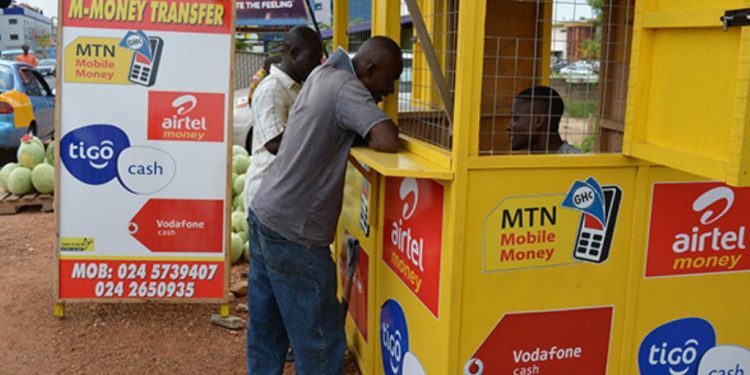Research Fellow at the Centre for Social Policy Studies (CSPS) at the University of Ghana has expressed optimism that the modified version of the E-levy bill passed by Parliament and assented by the President may generate more revenues than the original version proposed in the 2022 Budget Statement in November last year.
Dr. Kwadwo Opoku believes the initial version of the electronic transactions tax (E-Levy) looked more like a tax on mobile money transactions which may not have generated enough revenues for the government as projected in the budget.
He said the new bill assented by the President has been broadened to include other electronic transactions such as internet banking, that were previously not covered.
“Initially, when it came out, it’s almost like a MoMo tax, but maybe given our write up or probably they considered a lot of things, now, if you look at the bill and what they’re saying in the media, it has been broadened. So, my expectation is that, provided people do not reduce the use of the electronic medium, they will generate more than even what is targeted in the budget, they will generate far more than that. And that will be able to cater for a lot of the difference between expenditure and revenue” he said.
E-Levy to boost revenues
Dr. Opoku further indicated that even though government has announced a reduction in its expenditures, it will be difficult to achieve much in terms of reducing the country’s deficits unless more efforts are made to increase revenues.
He said cutting expenditure in Ghana may only mean reducing capital expenditure which will have dire consequences on long-term growth.
“I’ve always maintained that if you critically look at our budget, almost everything is rigid. So, when they say they are reducing it, the only thing that they can reduce is more often capital expenditure, and that is what if you want economic growth, you don’t want to reduce. So the issue is more about revenue.
“Once it is passed, though it has a lot of inefficiencies, it should be the last tax to be employed, but they will want to rely on this since the medium to collect it is readily available. So, if they’re able to do that, and people do not stop using it or it doesn’t reduce dramatically, they’ll generate a lot and that will make a lot of big difference. I mean, if they are able to make GH¢50 billion or something, that will be a lot to decrease the fiscal deficit” he added.
Dr. Opoku however, warned that “I can foresee, especially looking at the economic disincentives to use the electronic platforms and also political disincentives”, some difficulties in revenue generation from this tax in the short-term.
He said “in this short period, it may not be able to change a lot of variables that will improve generally, tax and also tax administration and other things”.
Possible challenges that E-levy may face
Dr. Opoku believes that “we contributed to this debate, because we thought that it will generate a conversation where people will argue” about this levy, its effects and design in a way that will make it “more efficient, but that was not”.
“If you listen to it, it’s more political argument. You could see that people don’t want the state to generate more revenue for political purpose. And so if people have that mentality and looking at the political divide, people may be ready to forsake the use of MoMo and other electronic transactions, just to make sure that government would not get resources to do what it wants to do. If this kind of thing that people are predicting actually happens, then, it will be a different thing altogether”.
Nevertheless, Dr. Opoku said under normal circumstances, given the levy’s broad nature, it is expected to generate more revenues if it does not lead to behavioral changes that may affect the usage of electronic platforms as a result of the introduction of the tax.


Comments are closed.